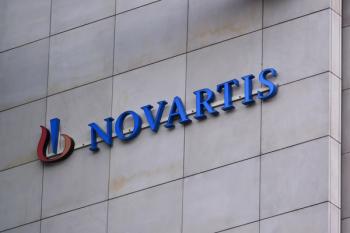
- Pharmaceutical Executive-07-01-2020
- Volume 40
- Issue 7
A Sustainable Response to COVID-19
Three areas critical to ensuring meaningful long-term action.
We need to start talking about what a sustainable response to the COVID-19 pandemic would look like. It’s on us to not only help meet the immediate biopharma-related
challenges, but to create new solutions and communicate our efforts and outcomes more effectively. We can’t do either of those things without a clear picture of what an effective long-term response entails.
The public dialog so far has been focused on asking “When will we get a vaccine?” And most of the effort within our sector so far has aimed at accelerating R&D and building production capacity. But the challenge won’t end with the development of diagnostics, treatments, or even a vaccine. The nature of the disease and the global scale of the problem means that we’ll be dealing with this for years to come, perhaps even permanently if it becomes endemic.
What would a sustainable biopharma response to the pandemic took like? In May, I moderated a Biopharma Sustainability Forum on Access to Medicine and COVID-19, with representatives from nine major biopharma companies, where we started to explore the perspectives of investor relations, corporate communications, and sustainability. Some of my takeaways from the discussion follow, with thanks to everyone who helped identify and sharpen these ideas.
Emphasizing a sustainability perspective, I’ve grouped my thoughts using the three most relevant, high-priority environmental, social, and governance (ESG) topics identified by biopharmas and investors for communicating long-term non-financial performance. For an in-depth discussion of all 12 topics and more, see the recently released
Risk and crisis management. Business continuity is a fundamental goal for biopharma, not only to enable targeted R&D focused on emergent diseases, but for ongoing clinical trials and continued availability of existing therapeutics. Companies responding more effectively have focused on taking care of their own organizations first, making sure that staff and their families are safe, and that plans for essential operations are clearly communicated. As the pandemic spreads, our focus will need to expand to all participants in the biopharma supply chain, and in the global healthcare delivery chain as well. There are not good structures in place to help the healthcare sector respond holistically, though the rapid development of collaborations and public/private partnerships focused on R&D and manufacturing capacity are heartening. Sourcing diversity and well-maintained stockpiles are another weakness highlighted by the pandemic. Optimized supply chains are easy to disrupt, so we may have to alter industry incentives and regulation to encourage a little more redundancy and diversity.
Access to healthcare and medicine pricing. Expect these topics to become front and center as new diagnostics and meaningful treatments start to come on the market. We’ve already seen poor stockpile decisions (hydroxychloroquine), pricing controversies (remdesivir), political arguments about early production access, and calls to make a future vaccine available without cost. To address the global scale of the pandemic, we will need many companies and many countries contributing to the solution. The flip side is that we’re likely to go through an extended period of chaos as multiple products come to market with varied performance in different populations, as countries take different approaches to licensing and production, and as biopharmas, governments, and NGOs seek ways to build healthcare capacity in less-developed parts of the world.
Innovation. Innovation happens at many levels. So far, the spotlight has been on R&D, seeking new diagnostics, medicines, and vaccines to address the novel coronavirus. But there is just as much scope for business model innovation in responding to the crisis, and in improving the public standing of our whole sector over time. Better coordination and greater resilience up and down the biopharma and healthcare supply chains is largely a matter of regulation and incentives, recognizing the fundamental difference between medicine and other aspects of our technological culture. Cross-licensing IP, spreading the cost of surging production capacity, and providing incentives for ongoing public health monitoring and vaccine development are all business and regulatory challenges. For example, how is the cost of development addressed when there is legitimate pressure for a “direct to generics” vaccine pathway? Can we focus on pandemic preparedness at a higher level, rather than on individual drugs? What is the basis for equitable pricing in different markets? How might the World Health Organization be made fit for purpose now?
We need an industry-level dialog to help craft and communicate a sustainable, socially meaningful response if we want to ensure sustainable solutions to these challenges.
Sandor Schoichet, Director, Meridian Management Consultants, and Co-Founder of the Biopharma Sustainability Roundtable. He can be reached at
Articles in this issue
over 5 years ago
Will COVID-19 Usher in a New Era in Pharma Marketing?over 5 years ago
Is Drug Production Heading Back to Europe From Abroad?over 5 years ago
Central Focus: Targeting Unmet Need in CNSover 5 years ago
Will the Industry Rise to the Occasion?over 5 years ago
How Oncologists are Coping with COVID-19over 5 years ago
Virtual Hiring of the C-Suiteover 5 years ago
Culture and Compliance: Building a Culture of Business Ethicsover 5 years ago
Fauci: Industry Will ‘Walk Away’ From COVID Price Controlsover 5 years ago
Enterprise Leadership: Is Compliance Ripe for Disruption?over 5 years ago
Pharmaceutical Executive, July 2020 Issue (PDF)Newsletter
Lead with insight with the Pharmaceutical Executive newsletter, featuring strategic analysis, leadership trends, and market intelligence for biopharma decision-makers.




